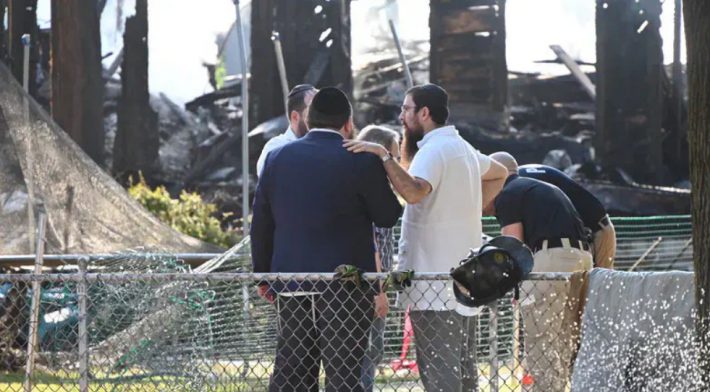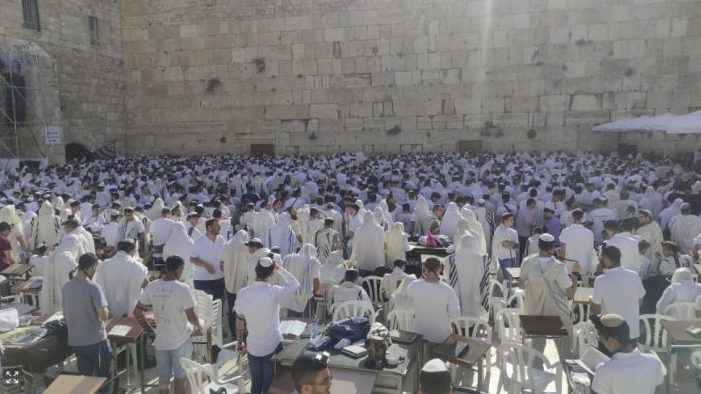As Bereishit begins anew, the Netziv’s timeless teaching reminds us that true holiness lies not in learning alone but in uprightness, compassion, and national unity.
This week marks the spiritual rebirth of the Jewish year — the opening words of Bereishit, the Genesis of both the world and the Jewish soul. Each cycle of Torah study invites not mere repetition but renewal — to approach the same text with new humility, new vision, and deeper moral clarity.
The Talmud in Avoda Zarah (25a) identifies Bereishit as “Sefer HaYashar” — the Book of the Upright — for it recounts the lives of our upright ancestors: Avraham, Yitzchak, and Yaakov, along with the righteous matriarchs who shaped the moral DNA of Israel. These early stories are not primitive myths, but divine case studies in what it means to live with yashrut — uprightness — in a world still raw with chaos.
The Netziv’s Warning: Torah Without Uprightness
Rabbi Naftali Tzvi Yehuda Berlin (the Netziv), in his introduction to Sefer Bereishit, explains that when the Torah calls Hashem “Yashar” — upright — in Devarim (32:4), it reveals the divine expectation that Israel reflect this same trait. During the Second Temple era, he notes, Torah learning flourished. Scholarship was abundant. But moral uprightness collapsed.
The people were punctilious in ritual and fierce in ideology, yet quick to condemn any Jew who worshipped differently as a heretic — even doing so “for the sake of Heaven.” This self-righteous zeal, warns the Netziv, was nothing less than murder of the soul of Am Yisrael. It was this spiritual corruption — not lack of learning — that led to the Temple’s destruction and our long exile.
Yashar: The Moral Spine of Creation
Why, then, is Bereishit called Sefer HaYashar? Because the Avot embodied this divine uprightness. Avraham prayed passionately for the sinners of Sodom — not because he agreed with them, but because his love for God included love for His creations. He saw no contradiction between faith and compassion. True faith demands both.
To be yashar, says the Netziv, is to balance conviction with humility, devotion with empathy. Any service of God that lacks compassion, respect, and tolerance for difference can easily warp into something destructive — a hollow piety that desecrates the very Name it seeks to honor.
A National Reflection: Unity After Redemption
As Israel celebrates the miraculous return of the last 20 living hostages from Hamas captivity, this lesson lands with special power. We have witnessed courage, grief, and grace in a single breath. And yet, amid such trials, divisions have flared — political, religious, and social.
The Netziv’s insight speaks directly to our moment: unity is not uniformity, and disagreement need not mean disdain. When we label fellow Jews as “other,” we replay the same tragic script that tore down our Beit HaMikdash.
Our generation’s challenge is not only to rebuild physically, but to repair spiritually — to act as a people of Sefer HaYashar, who can see the holiness in another Jew’s path even when it differs from our own.
The Path Forward: Compassion as Strength
The Torah begins again this week — not because it changes, but because we must. We must learn, as Rav Kook later wrote, to transform religious passion into light, not fire. To channel our conviction into empathy, not exclusion.
When Israel learns to hold its diversity as strength, when Torah becomes not a weapon but a bridge — that is when the world will recognize what it means for a people to walk yashar, upright before God.
In the merit of those who have sacrificed and suffered for Am Yisrael, may we learn from Bereishit to renew creation — within ourselves, within our nation, and within our world.





